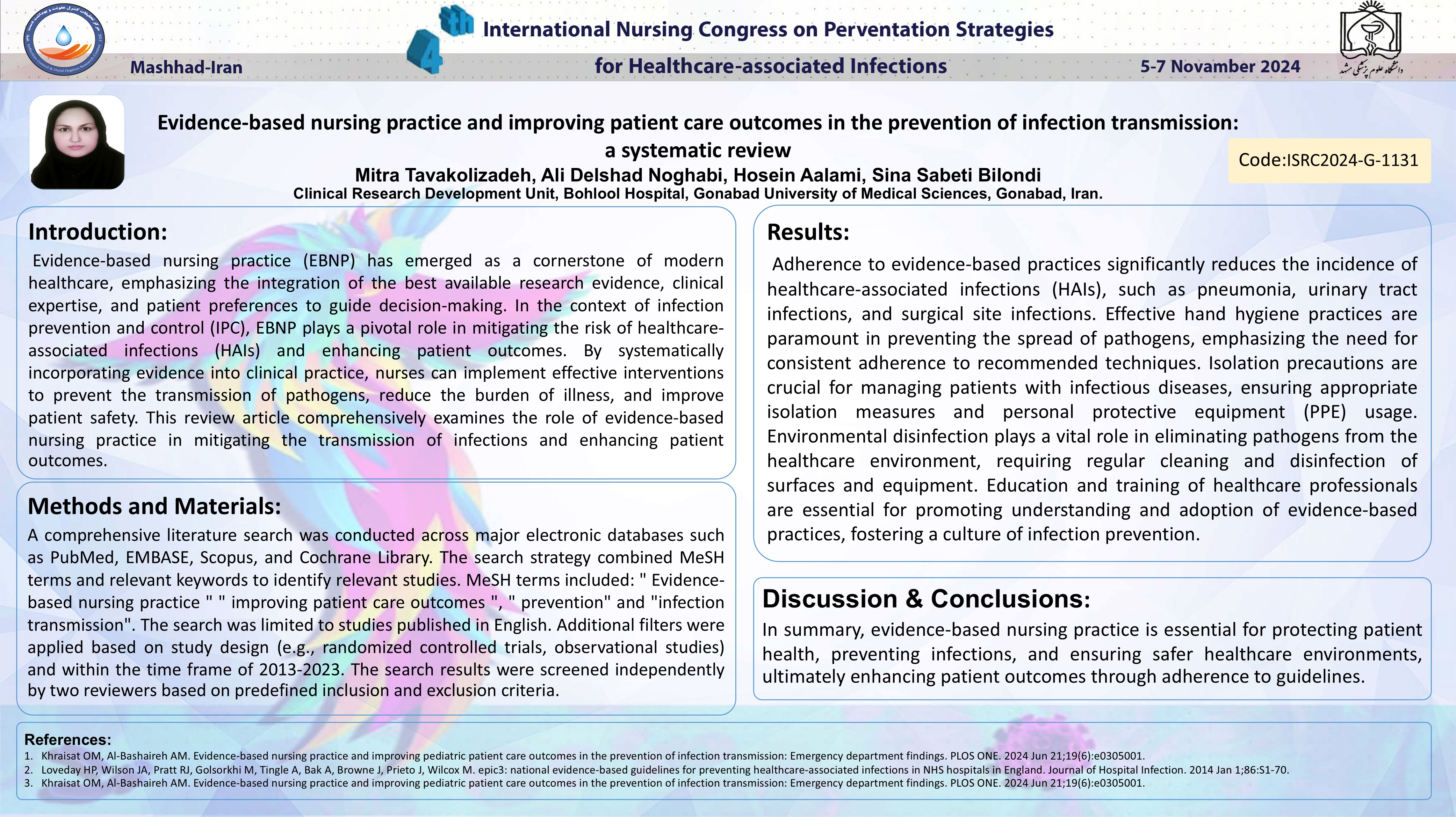عملکرد پرستاری مبتنی بر شواهد و بهبود نتایج مراقبت از بیمار در پیشگیری از انتقال عفونت: یک مرور نظام مند
کد: G-1131
نویسندگان: Mitra Tavakolizadeh © ℗, Ali Delshad Noghabi , Hosein Aalami, Sina Sabeti Bilondi
زمان بندی: زمان بندی نشده!
دانلود: دانلود پوستر
خلاصه مقاله:
خلاصه مقاله
Introduction: Evidence-based nursing practice (EBNP) has emerged as a cornerstone of modern healthcare, emphasizing the integration of the best available research evidence, clinical expertise, and patient preferences to guide decision-making. In the context of infection prevention and control (IPC), EBNP plays a pivotal role in mitigating the risk of healthcare-associated infections (HAIs) and enhancing patient outcomes. By systematically incorporating evidence into clinical practice, nurses can implement effective interventions to prevent the transmission of pathogens, reduce the burden of illness, and improve patient safety. This review article comprehensively examines the role of evidence-based nursing practice in mitigating the transmission of infections and enhancing patient outcomes. Search Strategy: A comprehensive literature search was conducted across major electronic databases such as PubMed, EMBASE, Scopus, and Cochrane Library. The search strategy combined MeSH terms and relevant keywords to identify relevant studies. MeSH terms included: " Evidence-based nursing practice " " improving patient care outcomes ", " prevention" and "infection transmission". The search was limited to studies published in English. Additional filters were applied based on study design (e.g., randomized controlled trials, observational studies) and within the time frame of 2013-2023. The search results were screened independently by two reviewers based on predefined inclusion and exclusion criteria. Results: Adherence to evidence-based practices significantly reduces the incidence of healthcare-associated infections (HAIs), such as pneumonia, urinary tract infections, and surgical site infections. Effective hand hygiene practices are paramount in preventing the spread of pathogens, emphasizing the need for consistent adherence to recommended techniques. Isolation precautions are crucial for managing patients with infectious diseases, ensuring appropriate isolation measures and personal protective equipment (PPE) usage. Environmental disinfection plays a vital role in eliminating pathogens from the healthcare environment, requiring regular cleaning and disinfection of surfaces and equipment. Education and training of healthcare professionals are essential for promoting understanding and adoption of evidence-based practices, fostering a culture of infection prevention. Conclusion: In summary, evidence-based nursing practice is essential for protecting patient health, preventing infections, and ensuring safer healthcare environments, ultimately enhancing patient outcomes through adherence to guidelines.
کلمات کلیدی
Evidence-based nursing practice, improving patient care outcomes, prevention, infection transmission, systematic review
